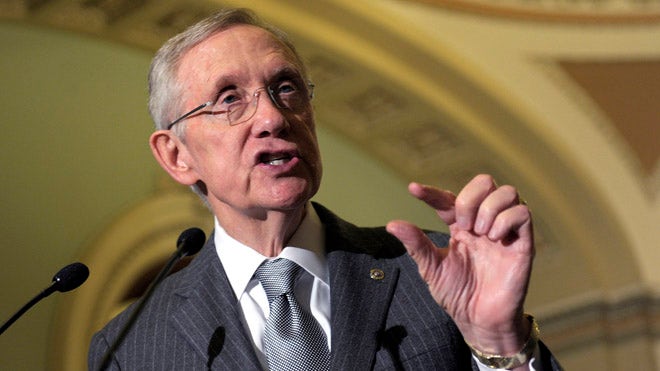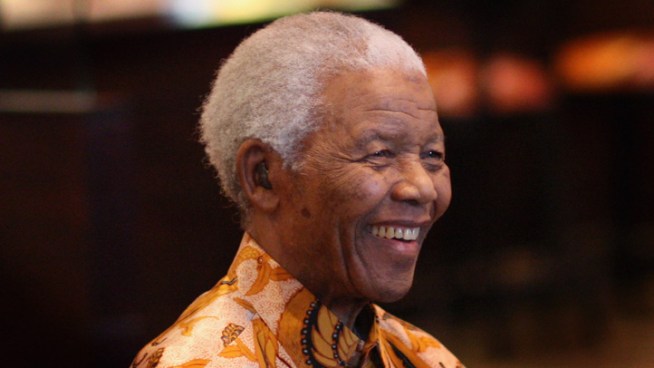
Verizon and HTC are just two companies that are expecting a busy 2013.
(Credit: Sarah Tew/CNET)
If nothing else, 2012 has shown that the mobile industry is a pretty tough business to be in.
Many handset manufacturers, wireless carriers, and component suppliers felt the pressures of mobile business sink in, and as a result, there were a lot of shake-ups this year.
The same pressures and competitive dynamics are expected to persist next year, so expect a lot more action. The following predictions are based on conversations with industry sources over the last few months, market trends, speculation, and a little wishful thinking.
One thing’s for sure, the industry should keep us all on our toes in 2013.
Consolidation continues
The wireless industry has long talked about the need for fewer service providers, and 2013 should follow through on some of the groundwork laid this year. SoftBank’s controlling stake in Sprint Nextel and T-Mobile USA’s merger with MetroPCS may signal a long-anticipated industry consolidation.
Other regional carriers such as U.S. Cellular and prepaid provider Leap Wireless could be in someone’s crosshairs. MetroPCS and Leap were long rumored to be dance partners, but that talk ceased when T-Mobile opted to form a new company with MetroPCS. But perhaps there’s room for Leap on that bandwagon?
Sprint attempted to make a run at MetroPCS, according to a Securities and Exchange Commission filing made by MetroPCS. Sprint could make another run at MetroPCS, or perhaps go after Leap. The wireless business is a scale business, where bigger is better, so maybe Sprint looks elsewhere?
It’s a safe bet that the big two, Verizon Wireless and AT&T, won’t be making any major deals. Verizon just managed to get approval for its deal to acquire spectrum from the cable companies, while AT&T is likely still gun shy after regulators squashed its attempted takeover of T-Mobile last year. AT&T has been content to strike smaller deals and get those through the regulatory maze.

CEO Steve Ballmer and the Windows Phone 8X from HTC.(Credit: Sarah Tew/CNET)
No clear third OS emerges
Next year sees a vicious battle for the so-called coveted No. 3 spot for mobile operating systems behind Google’s Android and Apple’s iOS.
The contenders are Microsoft’s Windows Phone 8 and Research in Motion’s BlackBerry 10. Both have expressed confidence that they have what it takes to be the third player in this increasingly crowded business. Windows Phone 8 benefits from an earlier launch and the coattails of the massive Windows 8 campaign from Microsoft. RIM, meanwhile, already boasts a large base of customers and will get a launch window all its own early next year.
Our call on this: nobody wins. Both will scrape by with just enough sales to warrant continuing, but neither will see spectacular performance.
While Microsoft is selling its Windows Phone 8 platform as part of a family of Windows 8 products, Windows 8 itself isn’t off to a scintillating start, and that might slow adoption of the mobile OS.
BlackBerry 10, meanwhile, may get some traction with hardcore BlackBerry users who want an upgrade, but it’ll take a while for RIM to convince other consumers to take another chance on the platform. While RIM likes to boast of its 80-million-strong customer base (now 79 million after the fiscal third quarter), many of those customers are using the more affordable BlackBerry 7 devices.
In addition, the dominance of Android and Apple make it extremely difficult for any third player to make inroads on the market.
RIM in store for a shake up
If BlackBerry 10 isn’t a success out of the gate, expect to see some agitation within the investment community — or what’s left of it — which has patiently held out hope for a turnaround. Investors don’t have unlimited patience, and an early stumble could mean pressure on the company to shake things up.
That could mean anything from another change on top, although CEO Thorsten Heins has led the company with relatively far fewer mistakes than his predecessors, to a potential sale of the company. The company could make good on its push to license its BlackBerry 10 operating system to different industries.
Last year, I called for RIM to get taken out, and I won’t be burned by that prediction again. RIM does survive, but it either a drastically reduced or transformed way.
Spectrum grab
It’s amazing what a few deals will do to the state of a crisis, right? All of the industry’s biggest players, including AT&T and Verizon Wireless, all claimed a looming spectrum crisis in justifying their respective deals. After Verizon got its cable spectrum, and AT&T scooped up a number of smaller businesses, the rhetoric has changed greatly. Even Sprint and T-Mobile are sounding a lot more optimistic about things.
But the companies do insist that they need more spectrum, or the airwaves used to carry cellular traffic like voice and data, and they will likely pursue further deals next year. Sprint bought spectrum from U.S. Cellular, likely a prelude of future spectrum swaps. Verizon is also selling off a swath of its spectrum as a condition to acquiring an alternative patch of spectrum from the cable providers, something that’ll likely entice all companies, including T-Mobile to other smaller regional companies.
Dish Network, meanwhile, is sitting on a wealth of spectrum. The most likely scenario is that it sells to AT&T, but the company is considering dabbling in mobile video.
A new chairman of the Federal Communications Commission is expected to replace Julius Genachowski next year, but with President Obama back for a second term, the FCC’s agenda and focus on spectrum shouldn’t change too much.
Google gets more active in wireless service
Sound farfetched? Well, the recent rumors that Google met with Dish to talk about a new wireless service lends some credibility to this prediction.
And Google already has a wired business in Google Fiber. While the deployment is limited to one area, the fact that it exists shows the Internet search giant is willing to dabble in different projects.
Dish has slowly been amassing enough spectrum for a nationwide service of its own, and has made it clear it would like to build a network. But the business requires a lot of capital, and it’s unclear whether Dish has the firepower to actually meet its goals. Enter Google, which has a lot of cash and technical resources.
This prediction is admittedly on a longer limb. It wouldn’t be surprising if this never happened.

What does Sprint CEO Dan Hesse have in store for us next?(Credit: Lynn La/CNET)
Softbank kick-starts Sprint
The infusion of $8 billion in additional capital should do wonders for Sprint’s prospects in the wireless market. The company has been criticized for its slow deployment of 4G LTE, which has managed to avoid major cities while covering “key markets” such as Rome, Ga., and Rockford, Ill.
Well, the extra cash should get CEO Dan Hesse moving a lot quicker when it comes to its 4G LTE rollout, which lags behind AT&T and Verizon. Unlike AT&T, which at least has a relatively quick HSPA+ network for its phones, Sprint customers using the most high-end devices are stuck on the painfully slow 3G CDMA technology, since it dropped using its variant of 4G, WiMax, in favor of LTE.
Sprint should get a wider selection of smartphones thank to its relationship with SoftBank. If SoftBank CEO Masayoshi Son is to be believed, Sprint will get even more competitive with pricing as it takes on its bigger rivals.
Higher focus on prepaid
Every carrier is going to rededicate itself to attacking the prepaid market, particularly with growth in the contract subscriber market quickly evaporating.
T-Mobile, which already has a sizable prepaid business, should only see its presence grow there once it joins up with MetroPCS, which only offers no-contract plans. CEO John Legere’s hints at a “different experience” for its iPhone could mean an affordable prepaid option for Apple’s marquee device.
Even larger carriers such as Verizon can’t ignore prepaid, given the need to keep customer growth humming. Sprint, which has been aggressive in prepaid with its Virgin Mobile and Boost Mobile lines, was seen as the biggest potential loser of the T-Mobile-MetroPCS marriage.

Using Google Wallet to pay for a cab ride was complicated and awkward.(Credit: Roger Cheng/CNET)
Mobile payments whiff again
Next year is the year for mobile payments, really! Yeah, that line has only been uttered a few times over the past several years, and so far, we’ve got a few limited launches.
Google continues to have the most visible initiative out there, and it hasn’t really taken too many people by storm, despite seeding the capability and Google Wallet out to its Nexus smartphones. Isis, the joint venture between AT&T, Verizon Wireless, and T-Mobile, just started its trials last month, and there are no signs when it’ll move beyond that. The deal between Starbucks and Square seems interesting, but for now, it’s largely Square processing Starbucks payments and not fully utilizing the advantages of full mobile payments.
Mobile payments continue to be hampered by rival groups all with their own agendas, and some don’t even feel it really addresses any real problems.
Apple, meanwhile, hasn’t committed to the Near-Field Communication technology used by many of the mobile payment parties, and offers its PassBook as its take on a mobile wallet. Even then, the implementation has been limited and disappointing.
Apple, Samsung will dominate, but new entrants could mix things up
With the iPhone and, increasingly, the Galaxy S, brands coming with their own built-in hype machines, expect the two companies continue reaping in a majority of the profits. Companies such as HTC, LG, and Sony have struggled this year, and those struggles are expected to continue with few of them bringing out a product that really changes their circumstance.
HTC has the best shot with its Droid DNA, but it too lacks the resources to effectively compete against Apple and Samsung. Sony, LG, and a myriad of other companies are still looking for the right answers.
Next year could see some interesting new smartphones from Microsoft and Amazon, both long rumored to be building their own handsets. Google’s Motorola Mobility unit is reportedly building an “X” flagship phone that will better compete with the iPhone and Galaxy S III.

(Credit: CNET)
Samsung and Apple reach a settlement
Let’s file this one under the wishful thinking category. But I can’t be the only one sick of writing and reading about patent lawsuits, right?
This one is (sadly) not looking so good, especially if Samsung is saying this.
Let’s hope that the goodwill from the holidays carries through to Apple and Samsung’s lawyers. But most likely, the hostilities will continue as both try to one-up each other in courts around the world.
Mobile: 10 predictions for 2013



 .
.


 Autonomy founder Mike Lynch
Autonomy founder Mike Lynch 
 CEO Steve Ballmer and the Windows Phone 8X from HTC.(Credit: Sarah Tew/CNET)
CEO Steve Ballmer and the Windows Phone 8X from HTC.(Credit: Sarah Tew/CNET) 
 What does Sprint CEO Dan Hesse have in store for us next?(Credit: Lynn La/CNET)
What does Sprint CEO Dan Hesse have in store for us next?(Credit: Lynn La/CNET)  Using Google Wallet to pay for a cab ride was complicated and awkward.(Credit: Roger Cheng/CNET)
Using Google Wallet to pay for a cab ride was complicated and awkward.(Credit: Roger Cheng/CNET) 
 (Credit: CNET)
(Credit: CNET)
















 A photo of the ZTE Grand X in FCC filings. Notice the T-Mobile brand.
A photo of the ZTE Grand X in FCC filings. Notice the T-Mobile brand.  (Credit: Netflix)
(Credit: Netflix)


 Yes, and do it publicly.
Yes, and do it publicly.  It’ll take more than a Poke to knock out Snapchat.
It’ll take more than a Poke to knock out Snapchat.  Remember Facebook Questions? It sure didn’t stop Quora.
Remember Facebook Questions? It sure didn’t stop Quora. 



